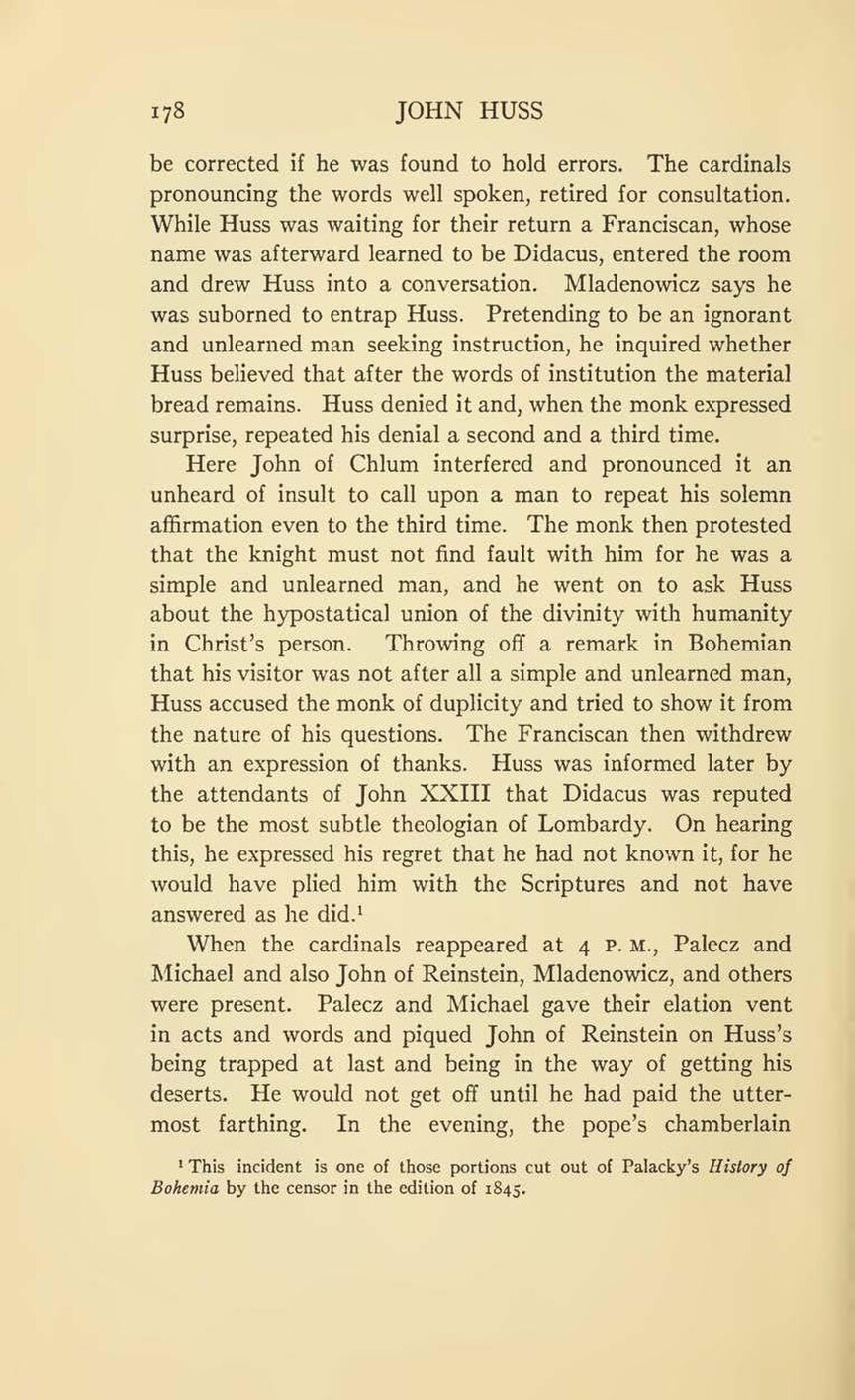be corrected if he was found to hold errors. The cardinals pronouncing the words well spoken, retired for consultation. While Huss was waiting for their return a Franciscan, whose name was afterward learned to be Didacus, entered the room and drew Huss into a conversation. Mladenowicz says he was suborned to entrap Huss. Pretending to be an ignorant and unlearned man seeking instruction, he inquired whether Huss believed that after the words of institution the material bread remains. Huss denied it and, when the monk expressed surprise, repeated his denial a second and a third time.
Here John of Chlum interfered and pronounced it an unheard of insult to call upon a man to repeat his solemn affirmation even to the third time. The monk then protested that the knight must not find fault with him for he was a simple and unlearned man, and he went on to ask Huss about the hypostatical union of the divinity with humanity in Christ’s person. Throwing off a remark in Bohemian that his visitor was not after all a simple and unlearned man, Huss accused the monk of duplicity and tried to show it from the nature of his questions. The Franciscan then withdrew with an expression of thanks. Huss was informed later by the attendants of John XXIII that Didacus was reputed to be the most subtle theologian of Lombardy. On hearing this, he expressed his regret that he had not known it, for he would have plied him with the Scriptures and not have answered as he did.[1]
When the cardinals reappeared at 4 p. m., Palecz and Michael and also John of Reinstein, Mladenowicz, and others were present. Palecz and Michael gave their elation vent in acts and words and piqued John of Reinstein on Huss’s being trapped at last and being in the way of getting his deserts. He would not get off until he had paid the uttermost farthing. In the evening, the pope’s chamberlain
- ↑ This incident is one of those portions cut out of Palacky’s History of Bohemia by the censor in the edition of 1845.
